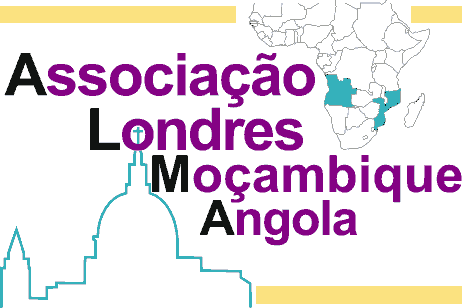ALMA Covenant
The first ALMA Covenant was signed on 12 July 1998. A renewed Covenant was signed on 13 July 2008 during the Rivers of Life service in St Paul’s Cathedral. The Covenant has been further renewed on 4 August 2022.

Agreement by the Diocese of London and the Anglican Church in Mozambique and Angola (IAMA) to renew the ALMA Partnership Covenant, begun 10 July 1998, for a further 10 years: Aug 2022 - July 2032
Archbishop Carlos Matsinhe: Presiding IAMA Archbishop

Bishop of London: Rt Revd and Rt Hon Dame Sarah Mullaly

Bishop André Soares: Dean of IAMA Province

As partners in the Gospel in a covenant relationship undergirded by prayer, we learn with and from each other, giving mutual support in our ministry and mission, worship and witness. Our priorities for the next decade are making disciples, serving our communities with compassion, growing the Church, teaching theology, learning from young people, and stiving for climate justice and creation care.
4August2022
“Grace and peace to you from God our Father
and the Lord Jesus Christ.
I thank my God every time I remember you.
In all my prayers for all of you, I always pray with joy
because of your partnership in the gospel
from the first day until now, being confident of this,
that he who began a good work in you
will carry it on to completion until the day of Christ Jesus”
(Philippians 1: 2-6 NIV)
Our partnership known as ALMA began as a result of the Covenant signed on 12th July 1998 by the bishops of Lebombo, London and Niassa. In 2003 the Diocese of Angola was formed and this Agreement recognises the benefits of partnership between these four dioceses over the last ten years and sets out our shared purpose and aims for the future.
These ten years have been ones of joy and pain, progress and setback, breakthrough and frustration in our journey with Christ. Amidst it all we have experienced Christ’s transforming power, as the Berta Sengulane Health Centre bears witness, to bring healing and life out of suffering and death. Thereby God brings into being that which did not exist. Visitors from London to our Link Dioceses have sometimes seen their lives changed for ever and schools in Africa now exist or are being built as testimony to those facts. The generosity of churches and individuals on both continents has manifested itself as their God-given gifts and resources have allowed; in one place a new mission and ministry programme, in another the spiritual rhythms and open hospitality of Africa. The challenges remain: of differing cultures that do not always understand each other; and of values that seem at times too rooted in the worldly kingdom rather than the Kingdom of God.
ALMA means “soul” in Portuguese. So, as in the original Covenant, our continuing purpose is for the soul of our partnership to be a commitment to mutual support in prayer and worship, in ministry and mission. Each diocese is a partner in the Gospel of Christ contributing according to its ability and having needs which the others will seek to meet.
Our aims are to develop the partnership:
In equipping our ministry for tasks relevant to today’s world we will have regard to the historical, political, economic and social context in which each Diocese exists as part of the worldwide Anglican Communion. Over the last decade the interconnectedness of the world has been brought home to us in ways we may not fully have appreciated at the start of our journey.
In particular, on the positive side, the technological revolution has created possibilities for transforming our communications which still need further improvement. On the reverse side, though, developed and emerging economies’ contribution to climate change, which may be affecting the propensity for floods and drought in Angola and Mozambique, require us to give far more urgent attention to environmental issues.
In seeking the harmony of shalom, which is possible only with God, we will continue to be sensitive and active in matters of peace, especially in an effort to enhance a culture of peace in our societies. In particular, our advocacy, which forms a key means to fulfilling our purpose and aims, will be informed by the 5 marks of mission of the Anglican Communion and the Millennium Development Goals for 2015.
Our partnership will be reviewed by our respective diocesan authorities together, including any new Dioceses that may come into being in the interim, within ten years.
Dated this thirteenth day of July in the year of our Lord Jesus Christ, two thousand and eight.
Around the original ALMA Covenant Document are four descriptors on partnership and being a partner: